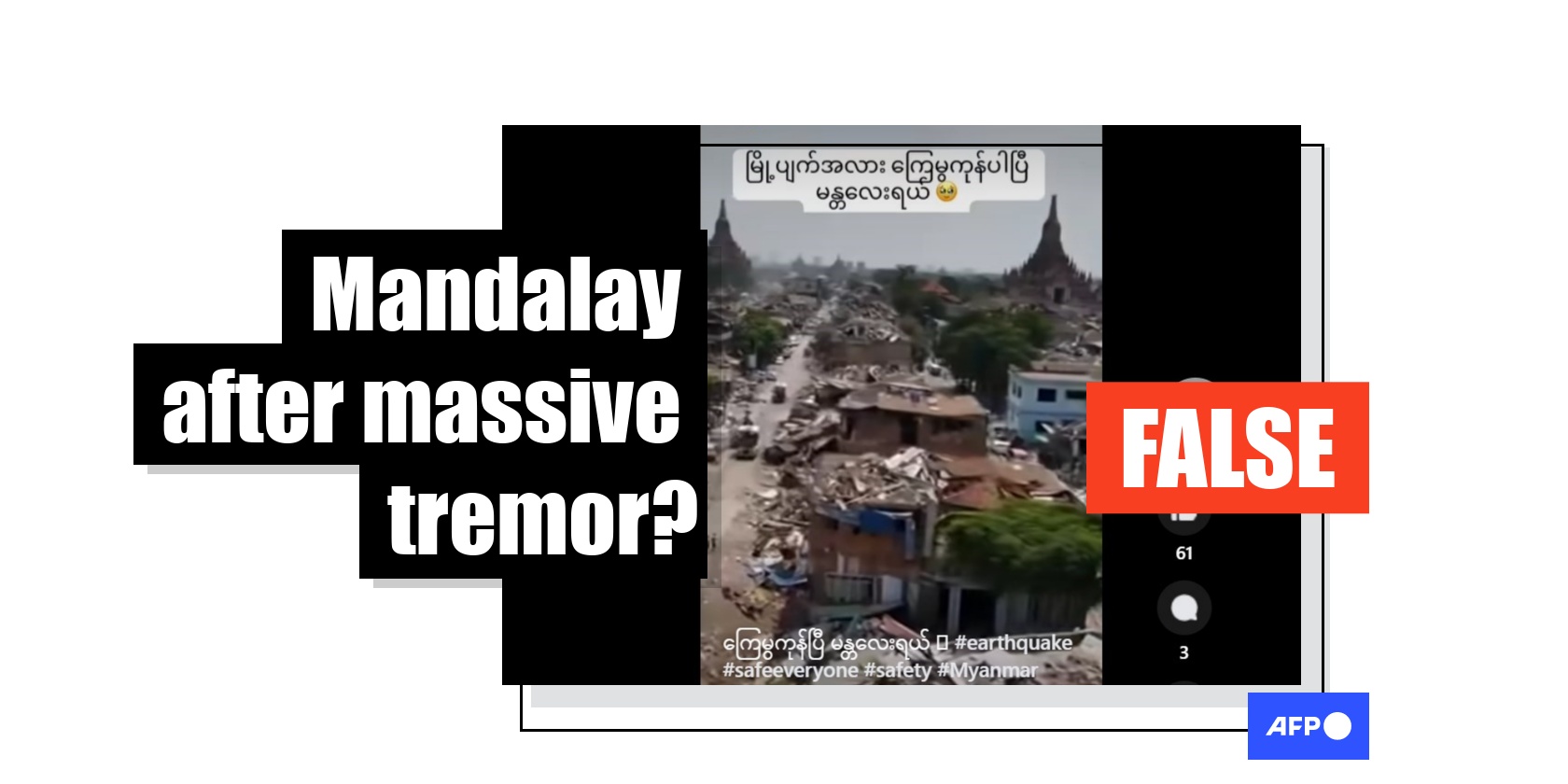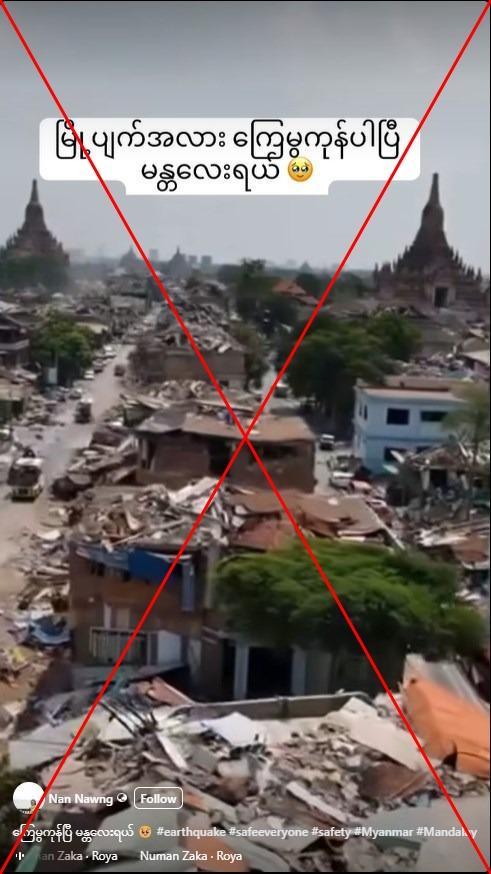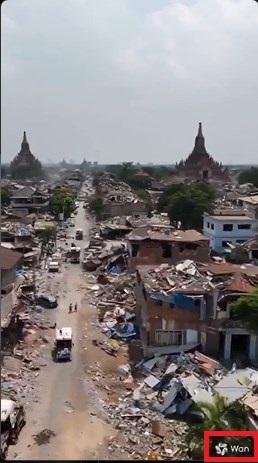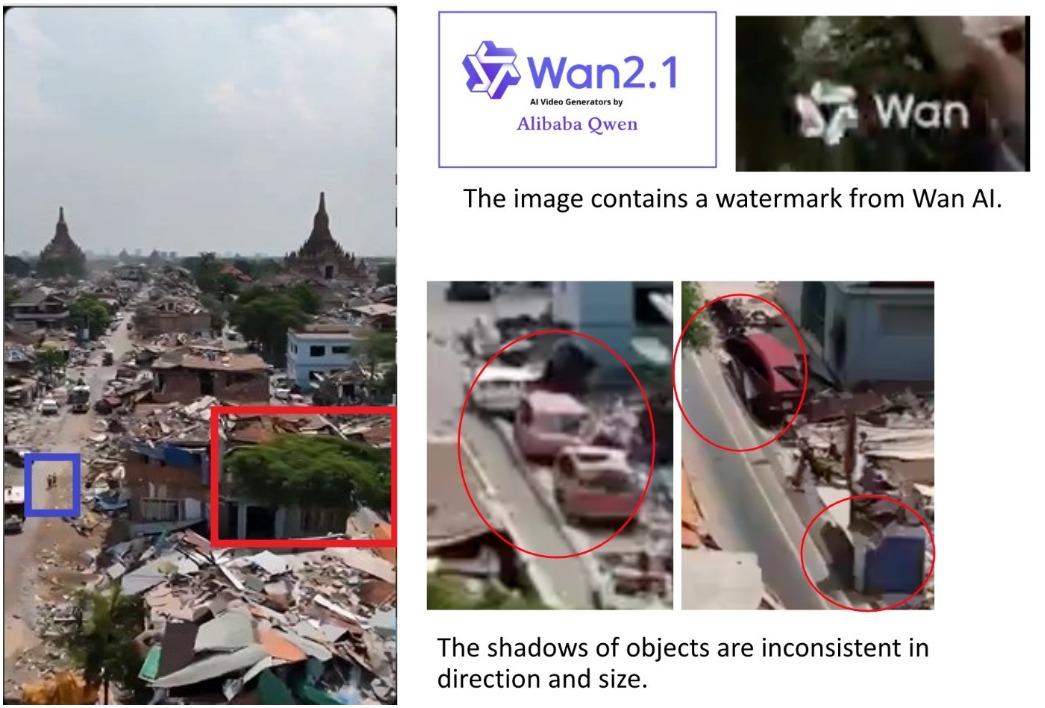
Footage bearing AI signs falsely presented as Myanmar quake aftermath
- Published on April 2, 2025 at 11:13
- Updated on April 3, 2025 at 07:45
- 2 min read
- By AFP Thailand
"Oh! Mandalay, it's like the city has fallen," reads the Burmese-language caption to the clip shared on Facebook one day after the quake.
It has more than 11,000 views and depicts an aerial view of a devastated city with pagodas visible on the skyline.
Text superimposed on the clip also says it shows the destruction in Mandalay.

The video also surfaced in similar posts written in Chinese, English, Indonesian, Spanish, Tamil, Thai and Urdu as reports emerged about the damage in the city from the shallow 7.7-magnitude earthquake.
The head of the ruling junta, Min Aung Hlaing, said on April 1 that 2,719 people were confirmed dead so far, with more than 4,500 injured and 441 still missing (archived link).
The toll is expected to rise significantly as rescuers reach towns and villages where communications have been cut off by the quake.
Hundreds of kilometres away, Bangkok authorities said the death toll there had risen to 20, the vast majority killed when a 30-storey skyscraper under construction in the Thai capital collapsed.
Comments to the posts indicate social media users believed the video shows genuine visuals following the quake.
"Oh! Mandalay, my heart is broken," one wrote. Another said: "There's hardly anything left in the entire town."
'Made with Wan AI'
A reverse image search on Google using the video's keyframes found a nearly identical video on X on March 29. Although its caption does not directly indicate the clip was made with AI, the logo of the generative tool Wan AI is visible at the bottom right corner of the higher quality footage (archived link).

Visual errors also suggest the video was generated using an AI tool, according to experts.
Shu Hu, director of Purdue University's Machine Learning and Media Forensics Lab, told AFP that trees in the clip lack visible roots while a person walks in a way not consistent with natural human motion (archived link).
Siwei Lyu, director of the University at Buffalo's Media Forensics Lab, separately pointed out the Wan AI watermark, and that the shadows of objects in the clip are inconsistent in direction and size (archived link).

While there is no foolproof method to spot AI-generated media, identifying watermarks and visual defects can help, as errors still occur despite the meteoric progress in generative AI.
AFP has previously debunked misinformation related to the earthquake in Myanmar here.
This story was updated to add metadata.April 3, 2025 This story was updated to add metadata.
Copyright © AFP 2017-2026. Any commercial use of this content requires a subscription. Click here to find out more.
Is there content that you would like AFP to fact-check? Get in touch.
Contact us




